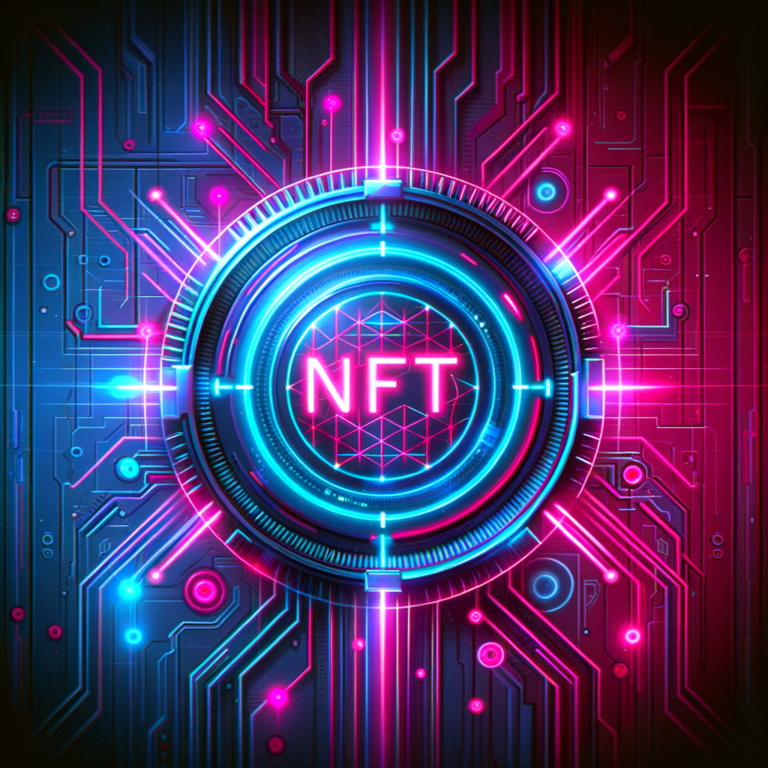Top NFT Scams to Watch Out For: A Must-Read Guide
The booming interest in Non-Fungible Tokens (NFTs) has not only opened new avenues for digital creators and collectors but also for opportunistic fraudsters. With substantial money being invested in these unique digital assets, understanding the landscape of potential scams is crucial for anyone entering this market. This guide will navigate through the murky waters of NFT scams, detailing the most common types you may encounter, and providing actionable advice to protect yourself and your investments.
Understanding NFTs: Basics and Risks
Non-Fungible Tokens (NFTs) represent ownership of a unique item or piece of content, such as digital art, on the blockchain. Unlike cryptocurrencies like Bitcoin or Ethereum, which are interchangeable, each NFT has a distinct value due to its uniqueness. However, the same blockchain technology that enhances their uniqueness also masks potential risks. The lack of regulation, the permanence of transactions, and the anonymity of blockchain can make NFT transactions particularly susceptible to scams.
Common Types of NFT Scams Explained
NFT scams can vary widely but typically involve methods where the scammer aims to steal funds or valuable digital assets. These scams can range from straightforward phishing attacks to complex manipulations involving fake NFT stores or counterfeit digital items. Understanding these common types is the first step in protecting yourself from potential financial harm.
The Phishing Scam: Stealing Digital Identities
Phishing scams in the NFT space often involve fraudsters pretending to be legitimate platforms or services to steal users’ credentials. These scams might come through emails, direct messages, or even through fake websites that look remarkably similar to well-known NFT platforms. Once these credentials are stolen, scammers can access your wallets and transfer out your funds or NFTs without your knowledge.
Rug Pulls in NFTs: A Sudden Trap
Rug pulls occur when the creators of an NFT project suddenly withdraw all the invested money and disappear. This type of scam is prevalent in projects that may seem promising and attract substantial investments from unsuspecting buyers. Typically, the project’s creators might promote heavily, inflate the value of the NFTs, and then pull out the liquidity, leaving investors with worthless assets.
Pump and Dump Schemes in the NFT World
Pump and dump schemes involve inflating the price of an NFT artificially through misleading or false statements. Once the value peaks, the scammers sell their overvalued NFTs to unsuspecting buyers and then disappear, causing the price to plummet and leaving investors at a loss. These schemes often leverage social media hype to lure investors into the trap.
Fake NFT Stores: Spotting Counterfeits
Fake NFT stores or marketplaces can appear legitimate but are set up to sell counterfeit or stolen NFTs. These platforms might offer highly sought-after items at lower prices to attract buyers. Unfortunately, once a purchase is made, the buyer receives a worthless copy, or the original creator’s work is infringed upon, leading to potential legal issues.
Exploitative Minting Scams Uncovered
In exploitative minting scams, scammers create NFTs that mimic popular and valuable ones, misleading buyers about the item’s origin or value. Often, these NFTs are minted or created at a rapid pace, flooding the market with fakes that dilute the value of genuine pieces. This tactic not only harms buyers but also undermines the credibility of legitimate creators.
Social Media Scams: Influencers and Bots
Social media platforms are ripe with NFT scams that involve bots and paid influencers. Bots can amplify the popularity of certain NFTs through fake likes and shares, while influencers may promote dubious NFT projects for a fee without disclosing their endorsements. Buyers influenced by such skewed social proof may end up investing in fraudulent or doomed projects.
Essential Tips to Avoid NFT Scams
Being vigilant and informed is your first line of defense against NFT scams. Always verify the authenticity of the NFT and the reputation of the seller or platform. Look for provenance and transaction history through blockchain explorers and be wary of offers that seem too good to be true. Engaging with community forums and reputable NFT advisors can also provide insights and warnings about potential scams.
Safeguarding Your Wallet: Best Practices
Protecting your digital wallet is crucial in the NFT space. Use wallets that require multi-factor authentication and never share your private keys or seed phrases with anyone. Regularly updating your wallet software and using strong, unique passwords are also vital practices. Consider using hardware wallets for additional security.
Legal Recourse Against NFT Fraudsters
If you fall victim to an NFT scam, there are several legal avenues you might explore. Reporting the fraud to the platform on which the transaction occurred can sometimes help in recovering funds. Additionally, contacting law enforcement and providing all relevant transaction details can aid in pursuing the scammers. Legal recourse can be complex in the blockchain space, so consulting with a legal professional experienced in digital asset laws is recommended.
Navigating the NFT marketplace safely requires awareness, meticulous research, and an understanding of common scams. By staying informed and cautious, investors can enjoy the creative and financial rewards of NFTs while minimizing their risk. Remember, in the rapidly evolving world of digital assets, vigilance is not just beneficial; it’s essential.


